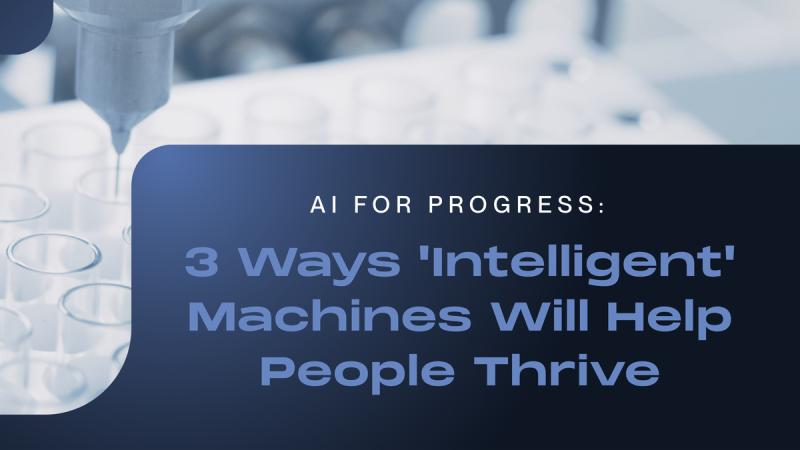 Digital Transformation of Collaboration: Proceedings of the 9th International COINs Conference (Springer Proceedings in Complexity)
Digital Transformation of Collaboration: Proceedings of the 9th International COINs Conference (Springer Proceedings in Complexity)
Springer
July 29, 2020
This proceedings is focused on the emerging concept of Collaborative Innovation Networks (COINs). COINs are at the core of collaborative knowledge networks, distributed communities taking advantage of the wide connectivity and the support of communication technologies, spanning beyond the organizational perimeter of companies on a global scale. The book presents the refereed conference papers from the 7th International Conference on COINs, October 8-9, 2019, in Warsaw, Poland. It includes papers for both application areas of COINs, (1) optimizing organizational creativity and performance, and (2) discovering and predicting new trends by identifying COINs on the Web through online social media analysis. Papers at COINs19 combine a wide range of interdisciplinary fields such as social network analysis, group dynamics, design and visualization, information systems and the psychology and sociality of collaboration, and intercultural analysis through the lens of online social media. They will cover most recent advances in areas from leadership and collaboration, trend prediction and data mining, to social competence and Internet communication.
See publication
Tags: AI, Digital Transformation, Creativity
 Collaborative Society (The MIT Press Essential Knowledge series)
Collaborative Society (The MIT Press Essential Knowledge series)
The MIT Press
February 18, 2020
How networked technology enables the emergence of a new collaborative society.
Humans are hard-wired for collaboration, and new technologies of communication act as a super-amplifier of our natural collaborative mindset. This volume in the MIT Press Essential Knowledge series examines the emergence of a new kind of social collaboration enabled by networked technologies. This new collaborative society might be characterized as a series of services and startups that enable peer-to-peer exchanges and interactions though technology. Some believe that the economic aspects of the new collaboration have the potential to make society more equitable; others see collaborative communities based on sharing as a cover for social injustice and user exploitation.
The book covers the “sharing economy,” and the hijacking of the term by corporations; different models of peer production, and motivations to participate; collaborative media production and consumption, the definitions of “amateur” and “professional,” and the power of memes; hactivism and social movements, including Anonymous and anti-ACTA protest; collaborative knowledge creation, including citizen science; collaborative self-tracking; and internet-mediated social relations, as seen in the use of Instagram, Snapchat, and Tinder. Finally, the book considers the future of these collaborative tendencies and the disruptions caused by fake news, bots, and other challenges.
See publication
Tags: AI, Digital Disruption
 Sztuczna Inteligencja. Nieludzka, arcyludzka
Sztuczna Inteligencja. Nieludzka, arcyludzka
Znak
January 01, 2020
Sztuczna Inteligencja. Nieludzka, arcyludzka
See publication
Tags: AI, Digital Disruption
 Wearable Technologies in Organizations: Privacy, Efficiency and Autonomy in Work
Wearable Technologies in Organizations: Privacy, Efficiency and Autonomy in Work
Palgrave Pivot
December 11, 2018
This innovative book considers the positive and negative impact of wearable technologies on organization and work. First discussing the development and use of this software within the workspace, the author highlights potential issues such as privacy, addiction and lack of work efficiency. Technology has had a major impact on workspace and workforce, and the second section explores how it has emerged as a key driver of collaboration, and what the shortfalls are in terms of autonomy, solidarity and authenticity. Cloud technology, mobile technology, collaboration apps, the Internet of Things, and highly specialized AI bear the promise of a radical enhancement of the way we work and interact. This book discusses the potential future scenarios for wearable technologies in the context of the IoT and as a social and organizational phenomenon.
See publication
Tags: AI, IoT, Privacy
 AI Leadership
AI Leadership
Massachusetts Institute of Technology
December 08, 2021
Connecting Leadership and Artificial Intelligence (AI), managers, directors and CEOs will learn how AI technology can amplify current leadership practices to improve individual, team and organizational leadership capabilities. In this six-week online course, leaders will gain new leadership capabilities to improve the ability of their teams to innovate and succeed, and to help their organizations act with agility and purpose.
See publication
Tags: AI, Innovation, Leadership
 In the shades of the uncanny valley: An experimental study of human–chatbot interaction
In the shades of the uncanny valley: An experimental study of human–chatbot interaction
Future Generation Computer Systems 92: 539-548
March 01, 2019
This project has been carried out in the context of recent major developments in botics and more widespread usage of virtual agents in personal and professional sphere. The general purpose of the experiment was to thoroughly examine the character of the human–non-human interaction process. Thus, in the paper, we present a study of human–chatbot interaction, focusing on the affective responses of users to different types of interfaces with which they interact. The experiment consisted of two parts: measurement of psychophysiological reactions of chatbot users and a detailed questionnaire that focused on assessing interactions and willingness to collaborate with a bot. In the first quantitative stage, participants interacted with a chatbot, either with a simple text chatbot (control group) or an avatar reading its responses in addition to only presenting them on the screen (experimental group. We gathered the following psychophysiological data from participants: electromyography (EMG), respirometer (RSP), electrocardiography (ECG), and electrodermal activity (EDA). In the last, declarative stage, participants filled out a series of questionnaires related to the experience of interacting with (chat)bots and to the overall human–(chat)bot collaboration assessment. The theory of planned behaviour survey investigated attitude towards cooperation with chatbots in the future. The social presence survey checked how much the chatbot was considered to be a “real” person. The anthropomorphism scale measured the extent to which the chatbot seems humanlike. Our particular focus was on the so-called uncanny valley effect, consisting of the feeling of eeriness and discomfort towards a given medium or technology that frequently appears in various kinds of human–machine interactions. Our results show that participants were experiencing lesser uncanny effects and less negative affect in cooperation with a simpler text chatbot than with the more complex, animated avatar chatbot. The simple chatbot have also induced less intense psychophysiological reactions. Despite major developments in botics, the user’s affective responses towards bots have frequently been neglected. In our view, understanding the user’s side may be crucial for designing better chatbots in the future and, thus, can contribute to advancing the field of human–computer interaction.
See publication
Tags: AI, Digital Transformation
Keynote: Automation. Human-Machine Collaboration. Autonomy. How do we find the limits? Aleksandra Przegalinska
SwissCognitive
November 08, 2021
To supercharge services and products for efficiency and agility, applying rule-based automation alone is not enough. Processes need to be infused with learning-based intelligence – both human and artificial, leading to the autonomy of algorithms, and smarter and adapted outcomes.
See publication
Tags: AI, Digital Disruption, Leadership
Sympathy for the Future | Aleksandra Przegalińska | TEDxWarsaw
TEDx Talks
May 17, 2016
A doctorate in artificial intelligence, long-term specialisation in human-computer interaction and an interest in disruptive technologies make Aleksandra Przegalińska an ideal candidate to take a look at the rapid growth of computer technologies and answer the question "What could possibly go wrong?"
A technology lover and a hip hop fan by night, by day, Aleksandra Przegalińska is Assistant Professor at the Center for Research on Organizations and Workplaces and the New Research on Digital Societies Group at the Koźmiński University in Warsaw.
This talk was given at a TEDx event using the TED conference format but independently organized by a local community. Learn more at http://ted.com/tedx
See publication
Tags: AI, Digital Disruption, IoT
 Exploring The Intersection of AI In Education With Aleksandra Przegalinska
Exploring The Intersection of AI In Education With Aleksandra Przegalinska
user.com
December 07, 2022
Professor Aleksandra shares ideas about the intersection of artificial intelligence and education, plus we look at some great concepts of assistive technology
See publication
Tags: AI, EdTech, Education
 3 Ways ‘Intelligent’ Machines Will Help People Thrive
3 Ways ‘Intelligent’ Machines Will Help People Thrive
Forbes
April 05, 2022
1. Enabling Human Progress
Speeding Drug Discovery: Failing fast is crucial in high-stakes research. Artificial intelligence (AI) is helping pharma do it, supercharging the trial-and-error process so scientists can home in on the answers they need. Machine learning apps are crunching oceans of data at speed and simulating the interactions within the body of billions of molecules both existing and theoretical. In the process, they’re revealing complex patterns that can guide researchers. The result: Novel drug development is twice as fast as it was before the advent of AI.
Connecting The Human Brain: Brain-computer interfacing (BCI) tech integrates the human brain into a digital—and specifically AI-powered—network, making it possible for neural signals to trigger physical-world events. Existing applications include tech that will adjust a home’s HVAC system when a resident’s brain signals too cold and move a cursor via a stimulus that beams from synapse to laptop. BCI represents another stride toward the human goal of controlling our environments, so we can live better lives within them.
Helping People With Disabilities: AI has perfected the closed captioning that makes visual media accessible to those with hearing impairments and given rise to obstacle identification, verbal face recognition and scenery identification apps to assist the visually impaired. For those living with paralysis, algorithms interpret the brain’s electrical signals, then detour them around damaged neural matter via surgically inserted interfaces so they can activate otherwise inaccessible nerves and make muscles move.
See publication
Tags: AI, Leadership
 Collaborative AI will Transform How We Work
Collaborative AI will Transform How We Work
Acceleration Economy
January 11, 2022
Artificial intelligence is all the rage today. Unfortunately, people treat it as a cool new fad to jump on without realizing the massive impact AI has today. But the future of AI will demand our attention in how we work and what our expectations will be.
See publication
Tags: AI, Leadership
Artificial Intelligence – Explainer in 3 levels of complexity
YouTube
April 22, 2021
What is Artificial Intelligence (AI)? What does it mean? What are the applications of AI? What can it do and how does it work? In this short video AI Specialist Alekasndra Przegalinska explains Artificial intelligence to 3 different generations (children, young adults and adults) and helps beginners better understand the concept and technology behind AI. Find out more: https://bit.ly/3vzZA6I
See publication
Tags: AI, Digital Disruption
Artificial Intelligence – Evolution dance
YouTube
April 22, 2021
This video shows the evolution of Artificial Intelligence (AI), its history, adaptation and future. Polish expert Aleksandra Przegalinska presents the evolution of machine learning & its purpose. Find out more: https://bit.ly/3vzZA6I
See publication
Tags: AI, Digital Disruption


 Digital Transformation of Collaboration: Proceedings of the 9th International COINs Conference (Springer Proceedings in Complexity)
Digital Transformation of Collaboration: Proceedings of the 9th International COINs Conference (Springer Proceedings in Complexity)
 Collaborative Society (The MIT Press Essential Knowledge series)
Collaborative Society (The MIT Press Essential Knowledge series)
 Sztuczna Inteligencja. Nieludzka, arcyludzka
Sztuczna Inteligencja. Nieludzka, arcyludzka
 Wearable Technologies in Organizations: Privacy, Efficiency and Autonomy in Work
Wearable Technologies in Organizations: Privacy, Efficiency and Autonomy in Work
 Beginners Guide to Artificial Intelligence in Business
Beginners Guide to Artificial Intelligence in Business
 Vice Rector at Kozminski University
Vice Rector at Kozminski University
 AI Leadership
AI Leadership
 In the shades of the uncanny valley: An experimental study of human–chatbot interaction
In the shades of the uncanny valley: An experimental study of human–chatbot interaction


 Exploring The Intersection of AI In Education With Aleksandra Przegalinska
Exploring The Intersection of AI In Education With Aleksandra Przegalinska
 3 Ways ‘Intelligent’ Machines Will Help People Thrive
3 Ways ‘Intelligent’ Machines Will Help People Thrive
 Collaborative AI will Transform How We Work
Collaborative AI will Transform How We Work

